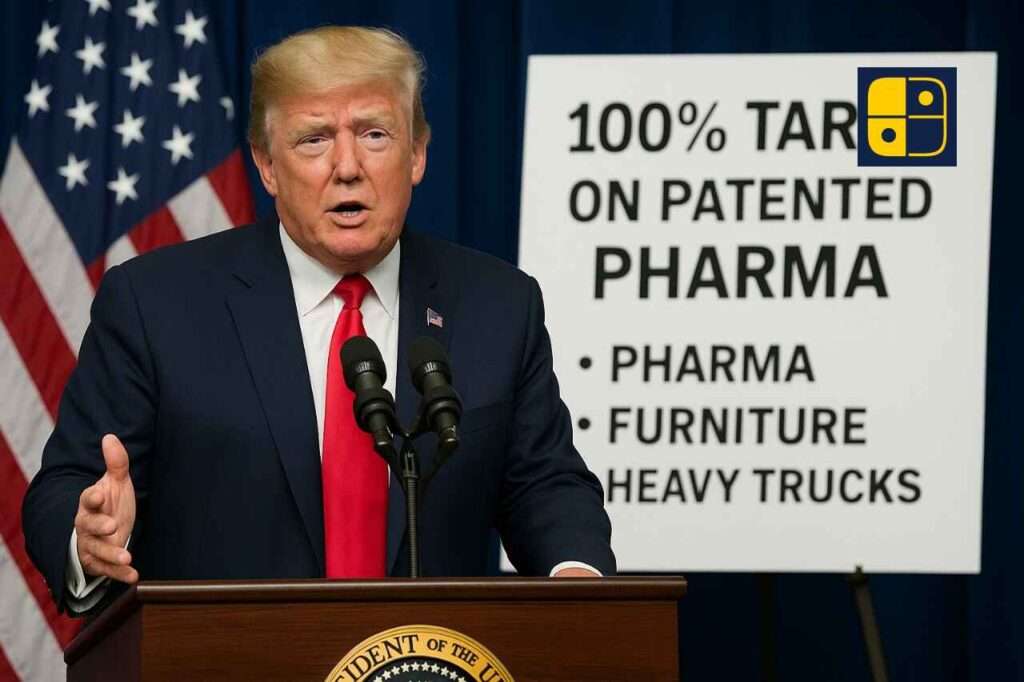Donald Trump’s decision to impose a 100% tariff on branded and patented pharmaceutical imports from October 1, 2025, reverberates far beyond U.S. borders. While projected as an industrial revival strategy, the measure threatens to fracture global pharmaceutical trade at a time when cross-border collaboration is central to drug affordability and innovation.
The European Union and Japan, home to leading pharma innovators, are likely to bear the brunt, potentially escalating transatlantic trade friction. China, already facing U.S. scrutiny in technology and manufacturing, now finds its pharma exports caught in the crossfire. The global supply chain optimized for efficiency rather than national boundaries will inevitably face disruptions, with higher costs passed on to patients worldwide.
For India, the world’s largest supplier of generics, the tariff presents both risk and opportunity. Since the measure targets branded drugs, Indian firms may be insulated in the short run, even gaining market share in the generics segment. Yet the broader volatility in global drug pricing, coupled with a nervous investor climate, could squeeze margins.
Critically, the move may deepen fragmentation in global trade governance. With the WTO sidelined and unilateral tariffs proliferating, healthcare, a domain requiring global cooperation is now hostage to nationalist politics. Trump’s tariff risks rewriting not just supply chains, but also the fragile trust underpinning international commerce.

